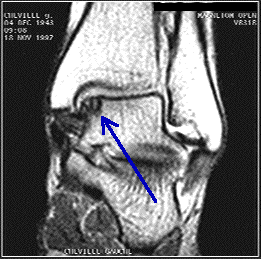#TodaysPodiatrist can help with neuropathy
As, #TodaysPodiatrist, I have patients asking me about alternatives treatments, instead of taking "drugs", for their neuropathy? They want answers, and we are here to help determine a treatment
plan or give them answers about the underlying cause. When scheduling your appointment, remember to let our team know the reason for the meeting and bring your COMPLETE medical history AND medication list!
What we do--
First, is to determine the reasons.
For example: back/nerve impingement, traumatic nerve damage, chemical exposure, genetics, infection, autoimmune disorders, organ failure, diabetes, diet, etc.
Next, what do you want to be fixed? Learn about what is possible and impossible in a treatment plan. Is the neuropathy "painful", just "numbness", or loss of muscle function?
What other diseases are in play? What diseases complicate specific treatments.
Sadly, even when the reason for the neuropathy is "fixable", most doctors focus on the treatment. Popular websites noted:
 HEY, if we can, let's fix the underlying cause and neuropathies often improve on their own. 95% of my patients do not have a proper understanding of diabetes and what is a PROPER diabetic diet. They most certainly were not told metformin inhibits the absorption of B12. Because metformin has become the mainstay of managing type 2 diabetes, we are seeing an explosion in the occurrence in nerve dysfunction.
HEY, if we can, let's fix the underlying cause and neuropathies often improve on their own. 95% of my patients do not have a proper understanding of diabetes and what is a PROPER diabetic diet. They most certainly were not told metformin inhibits the absorption of B12. Because metformin has become the mainstay of managing type 2 diabetes, we are seeing an explosion in the occurrence in nerve dysfunction.
Two common reasons behind neuropathy are Diet & Diabetes.
Here is a quick rundown from Harvard Health.
The human body needs vitamin B12 to make red blood cells, nerves, DNA, and carry out other functions.
Plants don’t make vitamin B12. The only foods that deliver it are meat, eggs, poultry, dairy products, and other foods from animals. Strict vegetarians and vegans are at high risk for developing a B12 deficiency if they don’t eat grains that have been fortified with the vitamin or take a vitamin supplement.
Aside from numbness, other symptoms are:
staggering, balance problems
anemia
a swollen, inflamed tongue
difficulty thinking and reasoning or memory loss
weakness
fatigue
Two common ways to boost B12 - weekly shots of vitamin B12 or daily high-dose B12 pills.
If you are over age 50, the Institute of Medicine recommends that you get extra B12 from a supplement, since you may not be able to absorb enough.
Actually, we all need a reset. Start with the building blocks of FOOD AS MEDICINE.
plan or give them answers about the underlying cause. When scheduling your appointment, remember to let our team know the reason for the meeting and bring your COMPLETE medical history AND medication list!
What we do--
First, is to determine the reasons.
For example: back/nerve impingement, traumatic nerve damage, chemical exposure, genetics, infection, autoimmune disorders, organ failure, diabetes, diet, etc.
Next, what do you want to be fixed? Learn about what is possible and impossible in a treatment plan. Is the neuropathy "painful", just "numbness", or loss of muscle function?
What other diseases are in play? What diseases complicate specific treatments.
Sadly, even when the reason for the neuropathy is "fixable", most doctors focus on the treatment. Popular websites noted:
"The goal of treatment is to control symptoms, which sometimes involves treating the underlying cause, if known (such as diabetes). When the underlying cause is corrected, neuropathies often improve on their own."But then the author spends the next several paragraphs, discussing in detail, these treatment options: pain medications, corticosteroids, anti-seizure medications, and antidepressants.
 HEY, if we can, let's fix the underlying cause and neuropathies often improve on their own. 95% of my patients do not have a proper understanding of diabetes and what is a PROPER diabetic diet. They most certainly were not told metformin inhibits the absorption of B12. Because metformin has become the mainstay of managing type 2 diabetes, we are seeing an explosion in the occurrence in nerve dysfunction.
HEY, if we can, let's fix the underlying cause and neuropathies often improve on their own. 95% of my patients do not have a proper understanding of diabetes and what is a PROPER diabetic diet. They most certainly were not told metformin inhibits the absorption of B12. Because metformin has become the mainstay of managing type 2 diabetes, we are seeing an explosion in the occurrence in nerve dysfunction.Two common reasons behind neuropathy are Diet & Diabetes.
Here is a quick rundown from Harvard Health.
The human body needs vitamin B12 to make red blood cells, nerves, DNA, and carry out other functions.
Plants don’t make vitamin B12. The only foods that deliver it are meat, eggs, poultry, dairy products, and other foods from animals. Strict vegetarians and vegans are at high risk for developing a B12 deficiency if they don’t eat grains that have been fortified with the vitamin or take a vitamin supplement.
Aside from numbness, other symptoms are:
staggering, balance problems
anemia
a swollen, inflamed tongue
difficulty thinking and reasoning or memory loss
weakness
fatigue
Two common ways to boost B12 - weekly shots of vitamin B12 or daily high-dose B12 pills.
If you are over age 50, the Institute of Medicine recommends that you get extra B12 from a supplement, since you may not be able to absorb enough.
Actually, we all need a reset. Start with the building blocks of FOOD AS MEDICINE.

